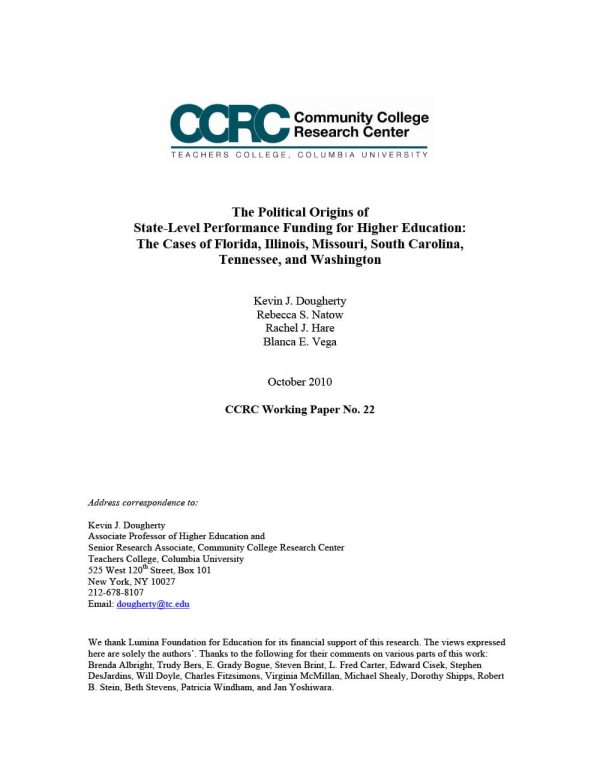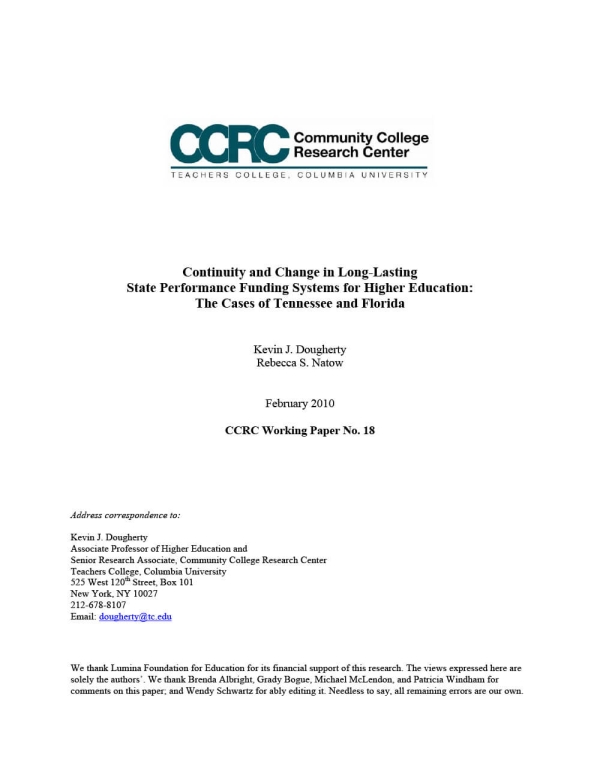The Politics of Performance Funding in Eight States: Origins, Demise, and Change

This report discusses political forces that shaped performance funding policies in eight states: Florida, Illinois, Missouri, South Carolina, Tennessee, Washington, California, and Nevada.
Popular but Unstable: Explaining Why State Performance Funding Systems in the United States Often Do Not Persist
The experiences of three states that dropped performance funding (Missouri, Washington, and Florida) are contrasted with those of a fourth (Tennessee) that has retained it more than 30 years.
The Political Origins of State-Level Performance Funding for Higher Education: The Cases of Florida, Illinois, Missouri, South Carolina, Tennessee, and Washington

This report examines the origins of state performance funding in six states and concludes by drawing lessons for policymakers.
Undocumented Immigrants and State Higher Education Policy: The Politics of In-State Tuition Eligibility in Texas and Arizona
The eligibility of undocumented students to apply for in-state tuition varies by state. This article analyzes the political origins of divergent responses among states, drawing on the advocacy coalition framework and policy entrepreneurship theory of policymaking.
Continuity and Change in Long-Lasting State Performance Funding Systems for Higher Education: The Cases of Tennessee and Florida

This paper examines how performance funding systems in two states with long-lasting systems have changed over time and what political and social conditions explain the changes.
